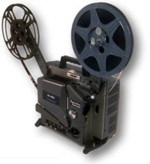 William Wordsworth
William Wordsworth
She Dwelt Among the Untrodden Ways
She dwelt among the untrodden ways
Beside the springs of Dove,
A Maid whom there were none to praise
And very few to love:
A violet by a mossy stone
Half hidden from the eye!
Fair as a star, when only one
Is shining in the sky.
She lived unknown, and few could know
When Lucy ceased to be;
But she is in her grave, and, oh,
The difference to me!
===
Mamacita says: If one is fortunate enough to be loved by a poet, one becomes immortal. Wordsworth’s Lucy was unknown to the world, and her death changed nothing for most people. But because Wordsworth wrote about her, her LIFE is known to us – at least, the importance of that life to one man – and understanding that one little thing should make a huge difference to all of us.
How many people do you know who are out there living and loving and working hard and receiving little or no recognition for it? That would be most of us, I’d guess. Let us all take a little time to look around and genuinely notice those who are content – on the surface, anyway – to remain in the background, supporting, feeding, nurturing, nourishing in many ways.
I have loved this little poem of Wordsworth’s for many years. When I first encountered it, its wealth of love and emotion packed into a few brief lines hit me so hard I was glad I was sitting down.
Lucy’s life enriched the poet, and her death made a difference to him. O, such a difference. . . .
When my students study the Holocaust, or participate in a discussion of disaster, war, etc – really, any large-scale catastrophe – one of my main goals is to make sure they understand that large numbers – statistics – are really people, and that when the see the pictures of these tragedies, every single face belongs to a human being who was precious to someone. Husbands, wives, children, lovers, neighbors, friends. . . . one of the reasons I dislike statistics so much is that to deal with them objectively removes the humanity. Statistics are people.
Paul Brodeur phrases it even better: Statistics are human beings with the tears wiped off.
The majority of people in Lucy’s world probably didn’t even know she existed, yet she was so important to Wordsworth that he immortalized her and what she meant to him in beautiful words that, well over a hundred years later, still have the power to kick us in the back of the knees.
Picture a violet by a mossy stone. One violet. Picture a star, one shining star, alone in the black night sky. Are these images not more uniquely beautiful than many violets, many stars? I think they are.
Romeo speaks of Juliet as a white dove trooping with crows. He is telling us that even in a crowd, she stands out, yes, that much. Imagery.
Oh, sure, I could lecture you about rhyme scheme and metaphors, but poets don’t write poems so their words could be dissected and analyzed. They write poems to help us see that the world is full of wonder. To dissect it is to kill it.
Imagery. Emotion. Love. Sorrow. Those are powerfully big punches to be contained in so few words.
That’s what poetry does, young Padawan.
A B A B, C D C D, E F E F. Now, poetry dissectors, we know all about it, don’t we.
 Edna St. Vincent Millay
Edna St. Vincent Millay
 Conrad Aiken
Conrad Aiken William Wordsworth
William Wordsworth Sara Teasdale
Sara Teasdale



